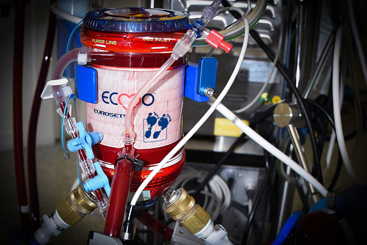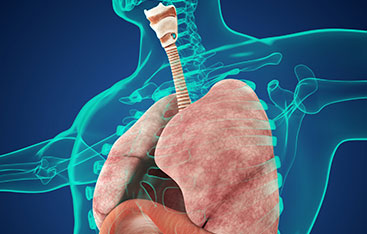Lung transplantation - Rejection reactions
Chronic lung damage such as COPD, cystic fibrosis or pulmonary fibrosis poses huge challenges for doctors because there are no regenerative therapies. Only a lung transplant can ensure patient survival. Unfortunately, new problems often arise after a successful transplant. Many patients' immune systems react with rejection reactions to the new lungs. In the worst case, frequent, initially acute rejections lead to chronic transplant failure (CLAD, chronic lung allograft dysfunction). The particularly tricky thing is that once again it is the vital and complex functions of the lungs that promote exactly this development:
- Because the lungs handle gas exchange, they are constantly connected to the outside world, allowing harmful substances to enter.
- In order to ward off harmful substances from outside, it is extremely active immunologically - which unfortunately also increases undesirable immune reactions.
- The large surface area of the branched alveoli makes the fight against these undesirable immune reactions even more difficult.

The result: Lung transplant patients have, on average, the worst long-term survival among transplant patients. This is where the scientists at CPC-M come into play with the following projects:
- How can CLAD, the rejection of the new organ by the recipient's immune system, be avoided? Which immunosuppressants, i.e. drugs that suppress the immune system, are particularly effective with few side effects?
- What are the consequences of the preoperative use of ECMO, a machine that replaces the lungs outside the body. It may result in significantly fewer rejection reactions and improve survival.
- Personalized medicine: How can patients be individually diagnosed and treated before and after the transplant? This applies, for example, to the dosage of immunosuppressants or specific genetic markers that reduce the risk of rejection.



